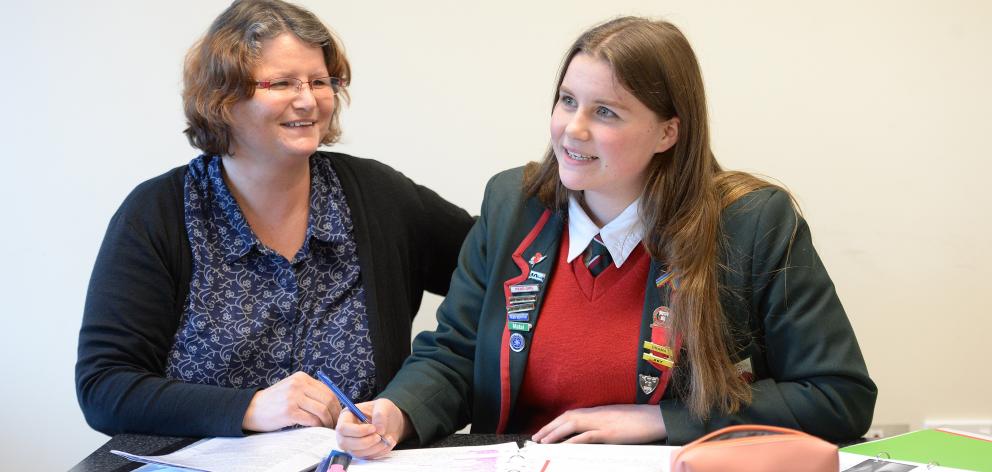
Kaikorai Valley College pupil Samara Marks (18) and her mother, Shelley Auld, agree NCEA has some faults and it could do with "tweaking", but that is where their agreement ends.
Ms Auld said NCEA was doing a good job of educating her daughters, and many of the criticisms about the qualification could, and should, be covered by parents.
"Parents need to take more responsibility as well, because making changes to NCEA is not going to fix everything.
"It is only part of our children’s education. It doesn’t make the whole person.
"I’ve got two very academic girls, so the NCEA system has worked largely quite well for them because they apply themselves, they work quite hard and they strive for excellence."
However, she was aware there were pupils who were less academic and had to be "spoon-fed" by teachers to reach standards. She doubted those pupils remembered anything they were taught because of the way they were taught.
Parents could play an integral part in encouraging their children into good study habits, she said.
One of her main concerns with NCEA was pupils coming out of school lacking basic life skills such as financial literacy, self-management, and being able to communicate and think critically.
But NCEA was only partly to blame.
"It’s an awful lot to ask schools to teach.
"Teachers are often so restricted by trying to get kids through NCEA that there’s a very narrow funnel of teaching going on.
"NCEA is geared towards academia and I don’t think it’s geared towards the whole person.
"Individual teachers and schools try their very best to round out these students, but NCEA is a little bit restrictive with that.
"A lot of it should come from parents, but that doesn’t always happen in a lot of families.
"It has to be a family and community approach."
Her daughter, Samara, is studying NCEA level 3 this year and said she had mixed thoughts about the qualification.
"I work hard, the system works quite well for me and having exams allows me to push myself further.
"And having internal assessments for students who don’t want to sit exams works for them too. It plays to everyone’s strengths.
"But I think NCEA is incredibly assessment orientated. We’re just focusing on writing what the assessment wants us to write — trying to get down what we need to pass.
"It’s not as much about learning as I would like it to be. I think that stops us from wanting to learn and being passionate about school."
One of her major concerns about NCEA was the pressure to do more assessment, beyond what was needed to pass, so she could accumulate as many excellence endorsements as possible.
NCEA pupils learnt from the beginning that those with the most excellence endorsements got the most tertiary scholarships (which helped keep student debt down) and gave them more chance of selection for tertiary courses such as health sciences and medicine, which were hard to get into.
"I don’t think learning should be competitive.
"When I’m in the classroom, I want to be learning for me, to get better with my own work.
"I don’t want to be compared to my peers or other people who want to pursue the same career paths as me."












